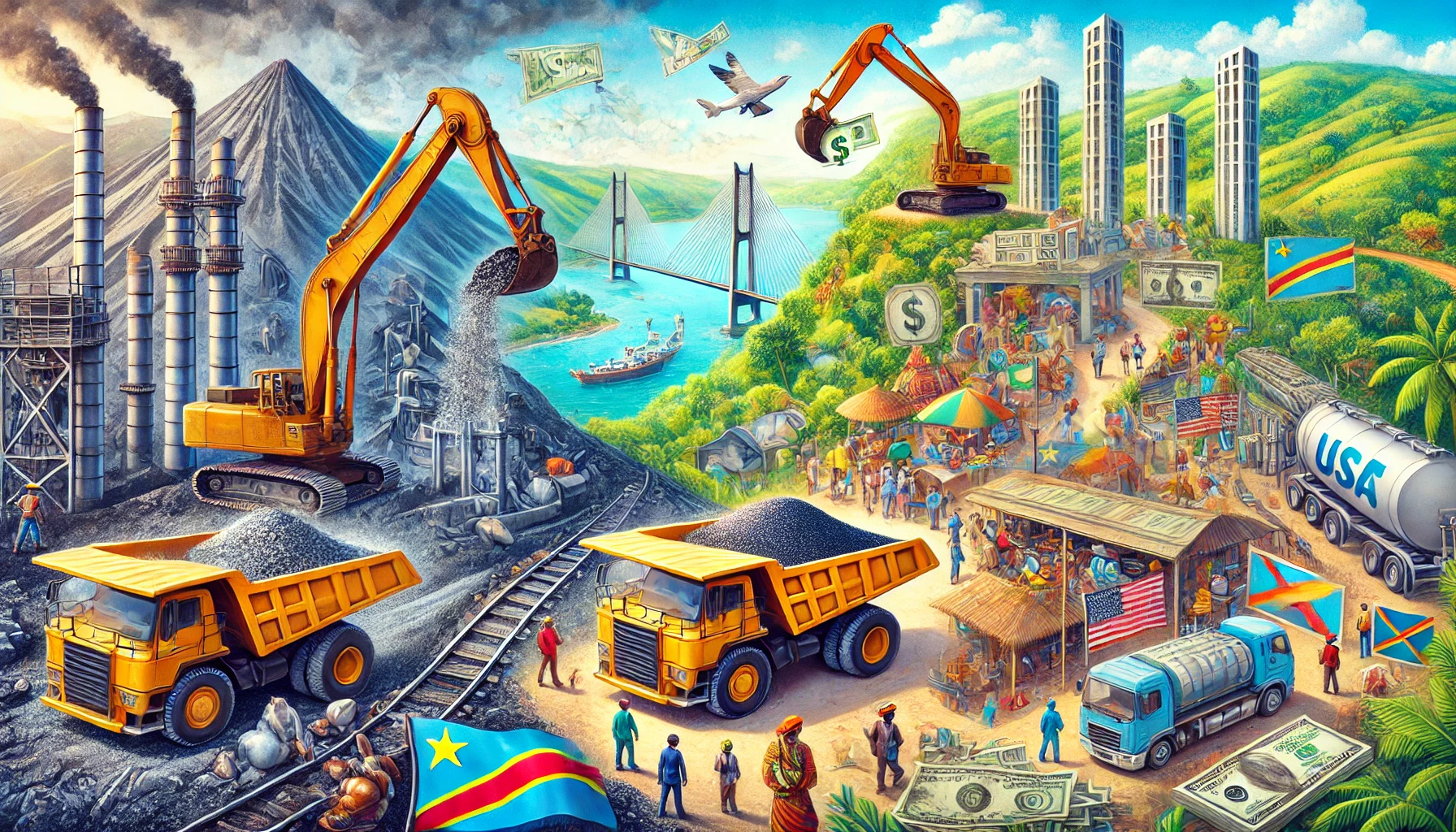Strengthening DRC’s Economy: Overcoming Dollarization for Sustainable Prosperity
The Democratic Republic of Congo faces significant economic challenges due to widespread dollarization and heavy reliance on its mining sector, which undermine monetary policy and economic diversification. Strategic reforms in fiscal discipline, institutional frameworks, and resource management could unlock sustainable growth and reduce vulnerability to external shocks.

The Democratic Republic of Congo (DRC) represents a fascinating yet challenging case study for economists and policymakers, particularly due to its unique blend of economic issues driven by widespread dollarization and a heavy reliance on natural resources. A recent study by global financial institutions explores these challenges, shedding light on the structural constraints hampering the country’s economic growth and monetary stability. Central to this analysis is the DRC's dependency on its mining sector, which contributes significantly to its GDP and exports but leaves the economy highly vulnerable to commodity price fluctuations. The interplay between resource dependency and dollarization creates a precarious economic environment that requires urgent and strategic reforms.
The Roots and Impact of Dollarization
One of the most critical issues affecting the DRC is dollarization, a phenomenon that has shaped its financial system and monetary policy for decades. Dollarization in the DRC can be traced back to years of hyperinflation and economic instability during the 1990s and early 2000s. These periods of turbulence eroded public trust in the local currency, the Congolese franc, prompting businesses and households to adopt the U.S. dollar as a more stable alternative. Today, the U.S. dollar dominates daily transactions, savings, and business operations across both urban and rural areas.
This pervasive dollarization significantly constrains the central bank's ability to implement effective monetary policy. For example, traditional tools like adjusting interest rates or controlling the money supply are largely ineffective in an economy where the majority of transactions occur in a foreign currency. This limits the government’s capacity to stabilize inflation, manage exchange rates, or influence economic growth. The study also highlights that even though macroeconomic stability has improved in recent years, reversing dollarization remains a daunting challenge due to its deep entrenchment in the economy.
Resource Dependency: A Double-Edged Sword
The DRC's wealth of natural resources, particularly in the mining sector, is both a blessing and a curse. As one of the world’s largest producers of cobalt and other critical minerals, the DRC benefits immensely from global demand, particularly in industries like electric vehicles and electronics. However, this dependence on mining revenues exposes the economy to the volatility of global commodity markets. When prices drop, fiscal revenues and foreign exchange reserves are adversely impacted, leading to severe economic instability.
Furthermore, the focus on resource extraction has stifled the development of other critical sectors such as agriculture, manufacturing, and services. This lack of diversification not only limits economic resilience but also perpetuates inequality, as the benefits of mining often fail to trickle down to the broader population. The study underscores that resource dependency, while lucrative in the short term, is unsustainable without efforts to channel revenues into broader economic development and diversification.
Rebuilding Trust in the Congolese Franc
Addressing the challenges of dollarization and resource dependency requires a multi-faceted approach, starting with rebuilding trust in the Congolese franc. The study emphasizes the need for stronger institutional frameworks and transparent public financial management as critical first steps. By improving fiscal discipline and ensuring efficient use of public funds, the government can create a stable environment that encourages the use of the local currency over the dollar.
The report also calls for strategic investments in infrastructure, education, and healthcare to foster long-term economic growth and stability. By leveraging resource revenues for these purposes, the DRC can lay the groundwork for a more inclusive and diversified economy. Such reforms are essential not only for reducing dependency on volatile mining revenues but also for empowering the central bank to regain control over monetary policy.
Toward Sustainable and Inclusive Growth
Despite the daunting challenges, the study remains cautiously optimistic about the DRC's economic future. It suggests that with the right combination of policy reforms, the country can transition from vulnerability to resilience. International cooperation and technical assistance from financial institutions could play a crucial role in supporting these efforts. For instance, regional economic partnerships could open new markets for Congolese products, encouraging trade diversification beyond raw minerals.
The report concludes that the DRC has the potential to transform its economy by adopting a strategic and long-term vision. By addressing dollarization, promoting fiscal discipline, and diversifying its economy, the DRC can reduce its dependency on external factors and build a more resilient economic foundation. This path toward sustainable and inclusive growth would not only enhance the country’s economic stability but also improve the quality of life for its citizens, empowering them to take greater control over their economic destiny.
The DRC stands at a crossroads, where prudent economic management and bold reforms could unlock the nation’s vast potential. While the challenges posed by dollarization and resource dependency are significant, they are not insurmountable. With strong institutions, strategic investments, and international support, the DRC can pave the way for a brighter and more equitable economic future. This transformation will require collective effort and determination, but the rewards—economic stability, reduced inequality, and enhanced sovereignty are well worth the endeavor.
- READ MORE ON:
- Democratic Republic of Congo
- DRC
- dollarization
- inflation
- FIRST PUBLISHED IN:
- Devdiscourse










